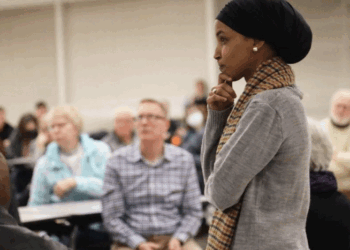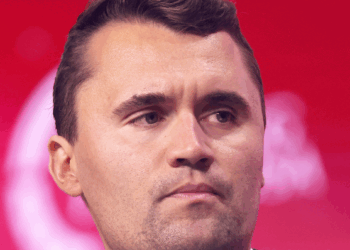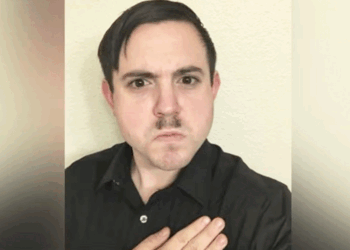If you weren’t watching the news last month, Israel engaged in its fourth recent bout of fighting with Hamas in Gaza. I’ve read numerous press accounts about events leading up to Hamas firing several thousand rockets at Israeli population centers. There was resistance to Jews taking over the homes of Palestinian Israelis in Sheikh Jarrah in East Jerusalem, and an Israeli police raid on the al-Aqsa Mosque that injured some 200 Palestinians.
A journalist in Minneapolis can say whatever he wants about the Israeli-Palestinian conflict and few people likely will care one way or the other. (There is a faction in our community that seems willing to fight to the last Israeli, and I hear from them on occasion.)

But what do Israelis think of the recent war?
Aluf Benn, editor of the esteemed Israeli newspaper Haaretz, visited my office some years ago. And on my last visit to Israel, in 2013, I interviewed Benn in his office in Tel Aviv. He’s a smart guy and knows all the players. He’s connected, as they say.
Writing in Haaretz, just two days before a ceasefire brokered by the U.S. and Egyptian governments was declared, Benn commented: “As of its ninth day, Operation Guardian of the Walls in Gaza has turned into Israel’s most failed and pointless border war ever, even when measured against the tough competition from the champion league of the Second Lebanon War, and Operations Pillar of Defense, Cast Lead and Protective Edge in Gaza. We have been witness to a serious military and diplomatic failure that has exposed major deficiencies in the army’s preparations and performance and in the leadership of a confused and helpless government.”
You can read more of Benn’s analysis on the Haaretz website; but I will note that popular sentiment has hardened against Israel’s treatment of the Palestinians — a military occupation that entered its 55th year this month — and its most recent onslaught on the civilian population in Gaza, the two million souls packed into a tiny coastal strip bordering Israel.
In many ways, Israel’s conduct is made possible by the U.S. government’s military assistance and diplomatic support. But some elected officials in the U.S. are pushing back on their government’s uncritical support of the Jewish state. Although the staunch Israel supporters in our community like to demonize Rep. Ilhan Omar, a more knowledgeable and focused member of the Minnesota congressional delegation has proposed legislation that ostensibly would protect Palestinians from Israeli human rights violations.
Rep. Betty McCollum, the DFLer representing the state’s Fourth District in the U.S. House, is the author of H.R. 2590 — Defending the Human Rights of Palestinian Children and Families Living Under Israeli Military Occupation Act. I had some questions for the congresswoman and conducted an email interview recently.
First, I asked if her proposal, which was referred to the Foreign Affairs Committee, would get a hearing.
McCollum responded that her legislation “acknowledges the humanity of the Palestinian people, as well as the repression, abuse and lack of freedom they face every day. The bill does not cut $1 of aid to Israel, but it does explicitly prohibit U.S. funds from being used for activities that support the occupation and violate international law. Congress overwhelmingly supports unconditioned aid to Israel, which gives the Netanyahu government a green light to act with impunity, expand settlements, demolish Palestinian homes, and pursue annexation of Palestinian land.”
Getting specifically to my question, she said, “I doubt this bill will get a hearing or a floor vote, but with over 150 civil rights, human rights, and Jewish, Muslim, and Christian organizations endorsing the bill it is serving as a vehicle for political activism — which is where policy change starts. Recently, I was reminded that the first [South Africa] anti-apartheid bill was introduced in Congress in 1972. It took nearly 14 years for the Comprehensive Anti-Apartheid Act of 1986 to become law. Making transformative change starts with a first step.”
Next, I asked McCollum, who has represented her district for the past 20 years, why her bill is needed, as there are a number of laws conditioning U.S. security assistance upon human rights observance — the Foreign Assistance Act, Arms Export Control Act and the Leahy Laws.
“The U.S. strongly supports security for the Israeli people, and I’ve voted many times over recent years in support of tens of billions of dollars in U.S. taxpayer funds in the form of military aid to Israel,” McCollum said. “My objection is that these funds also support and enable Israel’s military occupation of the West Bank and East Jerusalem that represses the Palestinian people. Thousands of Palestinian children have been arrested, detained, abused, forced to sign confessions written in another language, and imprisoned in Israel’s military detention system. Countless Palestinians have had their homes demolished by an Israeli government that privileges Jewish settlers and denies construction permits to Palestinians.”
The congresswoman continued: “Israel’s Prime Minister campaigns on annexing Palestinian land to remove Palestinian families and make way for more Jewish settlers. Clearly, existing U.S. laws either are not being applied or they do not address these human rights violations. H.R. 2590 prohibits U.S. aid from being used to support these blatant violations of international humanitarian law that take place in a systematic, deliberate, and overt manner.”
And I asked McCollum if Israel’s recent bombardment of Gaza, the previously mentioned Operation Guardian of the Walls, would be reviewed by Congress, vis-à-vis the provisions in her bill.
“Nothing in H.R. 2590 applies to the current situation in Gaza,” McCollum replied. “But as chair of the Appropriations Subcommittee on Defense, I am writing the Fiscal Year 2022 Defense Appropriations bill, and it will include full funding for the Iron Dome missile defense system which protected Israeli civilians from Hamas rocket attacks in recent weeks.”
In May, Sen. Bernie Sanders and other members of Congress stated their opposition to the U.S. government’s $735 million sale of precision-guided munitions to Israel. I asked McCollum if she, too, opposed this sale of weapons.
“I did oppose the sale,” she said. “The State Department’s decision to ignore congressional concerns and approve the sale of Joint Direct Attack Munitions kits to Israel was remarkably tone-deaf and callous. To prioritize an arms sale only days after the world watched Israel’s precision-guided ordnance kill more than 100 Palestinian children and women sends the absolute wrong message to the world. This decision is a setback to the cause of peace.”
Finally, I mentioned that most of McCollum’s House colleagues, both Democratic and Republican, oppose conditions on U.S. security assistance to Israel, in line with AIPAC’s position; however, I asked the congresswoman why she thought that more members of Congress are speaking out now in defense of the Palestinians.
“For 11 days, Hamas fired rockets from Gaza and Israel fired mortars and missiles into Gaza — but the dehumanization, discrimination and repression of Palestinians living in Gaza, in the West Bank and East Jerusalem, and in Israel as citizens is a persistent condition. Israel’s military occupation of the West Bank has lasted 54 years. It is a permanent occupation that is enforced by policies that keep Palestinians separate and unequal. I do not want $1 of U.S. taxpayer funds to support, enable, or extend the occupation or the repression of nearly seven million Palestinians living under Israeli control. At a moment in our country’s history when an American social justice movement has been galvanized to respond to structural racism and oppression, the cause of the Palestinian people is very much on the minds of a younger generation of Americans in our communities and in Congress.”
Perhaps, it’s the George Floyd Effect: Starting in Minneapolis last year, a movement for racial justice swept the globe, and the oppression of the Palestinians entered the mix in May. It’s undeniable that many more people are asking questions about the United States government’s annual $3.8 billion in military assistance to Israel, as many of our compatriots are under increasing financial stress.
As McCollum notes, even some Jewish groups, including J Street and Americans for Peace Now, support her proposal and are agitating against Israel’s “permanent occupation” of the Palestinian Territories.
— Mordecai Specktor / editor [at] ajwnews [dot] com
(American Jewish World, June 2021)




















